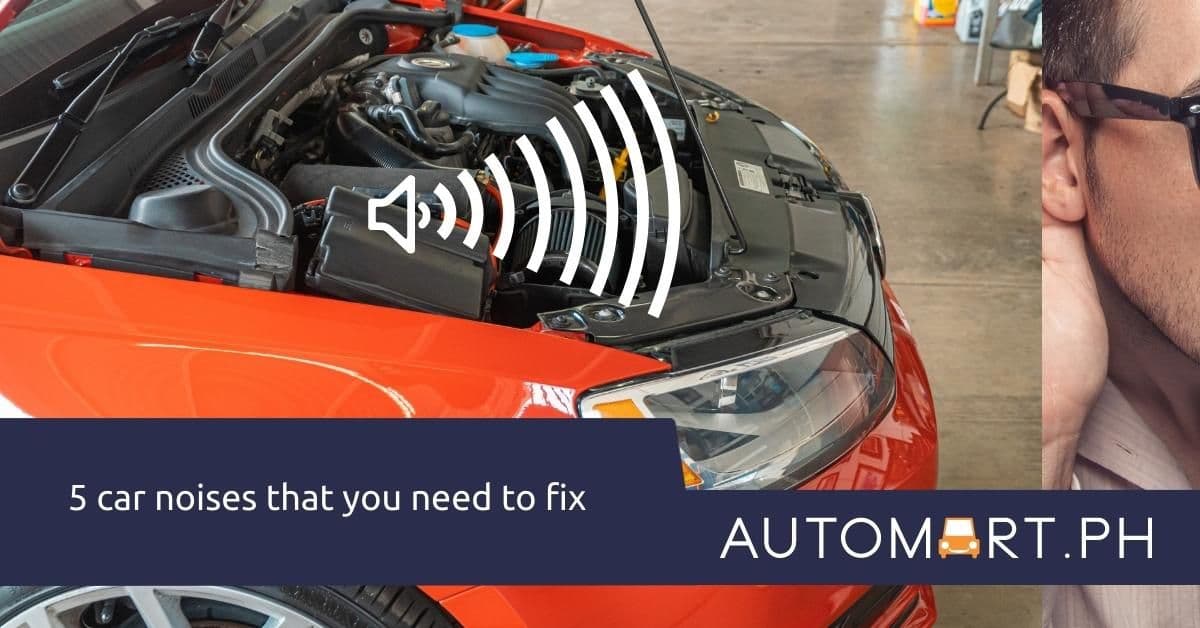
5 car noises that you need to fix
Updated on December 17 2025
METRO MANILA, – Is your car making weird noises?
That usually means it’s trying to tell you that something is wrong. The problem is that most people don’t understand what the car is trying to say. What should be an obvious sign of trouble often turns into monumental repair bills because of ignorance or neglect.
The key is to first know what your car sounds like when it’s running normally. This way, you will be able to spot an issue early on before it becomes more serious.
Here are some of the most common car noises that you must address right away.
Squealing or grinding
These can be caused by worn brake pads or shoes. There is also a possibility that your car may not have enough brake pad thickness to keep the metal components from touching.
If you catch it early enough, you may only need to replace the brake pads. Unresolved brake problems, on the other hand, can lead to failure because the components touching directly can damage the discs or drums.
Other possible causes include brake calipers that were improperly installed or have come loose.
Hissing or chirping
There are several reasons behind these types of noises:
- Overheating
- Clogged exhaust system or catalytic converter
- Leaking vacuum line, which can lead to poor idling
- Engine fluids leaking onto hot exhaust parts, which can cause a fire
- Failing brake booster, especially if the hissing happens when you press or release the brake pedal
- Worn fan belts if there is a persistent chirping noise
Rattling
This noise can be caused by various issues, such as:
- Loose lugnuts causing the wheel to wobble
- Low power steering fluid level
- Damaged power steering components
Rumbling or popping
If your car rumbles when you accelerate, it could be because of a hole in the exhaust system.
This can become unsafe because dangerous fumes can enter the passenger compartment. A popping noise can also indicate a fuel injector problem, which can cause engine damage, increased fuel consumption and higher emissions.
Whirring
Worn-out universal joints, dead wheel bearings or a faulty torque converter are all causes of whirring.
Your car’s engine also has several rotating belts that can stretch or crack over time as they circulate at high speeds around a system of pulleys. These can also contribute to the whirring sound.
If you want to have a car that doesn’t make all these noises, consider getting an Automart.PH Certified Used Vehicles. These are restored until they feel like new again. They also come with a three-day money-back guarantee and, for Gold Certified units, a one-year warranty.
Automart.PH proudly offers a wide selection of used cars at great prices, ranging from compact cars to pick-up trucks, that suit your needs.
Automart.PH Senior Content Creator VJ Bacungan contributed to this story.